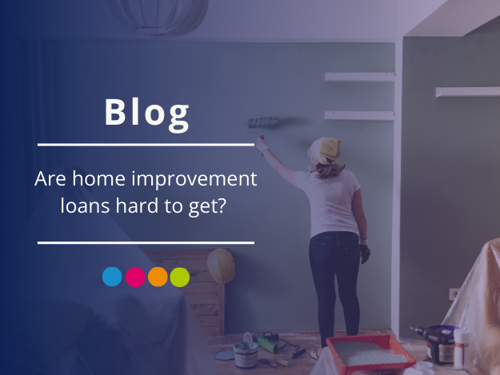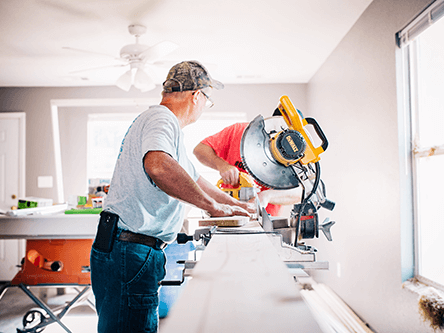
Home improvement projects are an exciting way to increase the value and comfort of your home, but they often come with significant costs. So, if you’re wondering, “are home improvement loans hard to get?” the short answer is: it depends.
In this blog, we’ll break down the factors that impact the approval process, explore the types of loans available, and help you understand whether it may be hard to get.
Understanding home improvement loans
A home improvement loan is money that you borrow to make improvements, repairs, or upgrades to your home. Whether you're planning a small kitchen remodel or a larger home renovation, these loans can help cover the costs.
There are different types of loans available, and choosing the right one depends on your needs and personal circumstances. Some loans are easier to get than others, and the type of loan can affect how much money you can borrow and how hard it is to get approved.
Types of home improvement loans
When looking for a loan, there are a few options to consider. Let’s explore two of the most common types:
Unsecured loans
An unsecured loan doesn’t require any security, such as your home, to back the loan. This makes it a less risky option for you.
Since there's no security required, loan amounts tend to be smaller, making this option ideal for lighter projects. So, if you need a smaller amount for minor repairs or upgrades, this could be a good choice.
However, unsecured loans often come with higher interest rates compared to secured loans. Additionally, getting approved can be more difficult, especially if your financial situation is complex.
Secured loans
A secured loan is backed by something you own, usually your home. By using your property as security, lenders are often able to offer larger loan amounts. This makes them ideal for bigger projects, like building an extension or doing major renovations.
Another advantage of secured loans is that they may be easier to get approved for, especially if your financial situation is tricky. This is because lenders have the security of knowing they can take the property if you don’t repay the loan. However, since your home is at risk, it’s important to ensure you can comfortably manage the repayments.
Factors that affect approval
When you apply for a loan, there are a few key factors that lenders will look at to determine whether you can borrow the money. Here are some of the most important factors:
Credit history
Your credit history is a record of how well you've handled debt in the past. If you’ve been good about paying off debts on time, you’ll likely have a good credit score, and it will be easier to get approved for a loan. On the other hand, if you’ve missed payments or have a lot of outstanding debt, it could be harder to get a loan. Some lenders may still approve you, but they may charge you a higher interest rate.
Income
Lenders want to make sure you can afford to repay the loan. They will look at your monthly income to determine whether you have enough money to cover both your living expenses and your loan payments. If your income is steady and reliable, lenders are more likely to approve your application. If you’re self-employed or have an income that varies from month to month, you may need to provide extra documentation to prove your ability to repay the loan.
Amount of existing debt
Lenders will also look at how much debt you already have. If you’re already carrying a lot of debt, they may be worried that adding another loan could make it hard for you to keep up with payments. They’ll calculate your debt-to-income (DTI) ratio to see if you’re overextended. If your DTI is too high, it could make it harder to get approved. But if you don’t have much existing debt, you’ll have a better chance.
Is it hard to get a home improvement loan?
Whether it’s hard to get approved depends on your financial history, background, and the type of loan you're applying for. In general, the process can vary based on your individual situation. Your credit score, income, and existing debt will all play a role, and different loan types may have different approval requirements. So, the difficulty of getting a loan can fluctuate depending on your circumstances.
Summary
Getting a home improvement loan can be straightforward, depending on your finances and the type of loan you choose. Your credit history, income, and current debt will affect your chances of getting approved. By understanding your options and making sure your finances are in good shape, you can improve your chances of getting the loan you need for your home improvement project.
Loans are secured against property. Think carefully before securing other debts against your home. Your home may be repossessed if you do not keep up repayments on a mortgage or any other debt secured on it.




